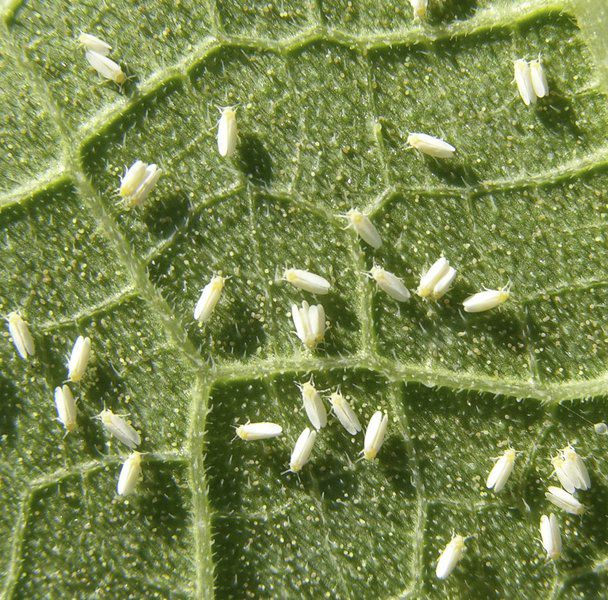Jan 3, 2018Whiteflies threaten Georgia crops
The destructive gnat-size whiteflies that have overrun farmers across south Georgia this year aren’t new to the state.
But the pests are particularly loathsome right now because of their massive numbers after back-to-back mild winters and because, this time, the hordes of whiteflies came armed with crop-crippling viruses that are new to Georgia.
“We have seen fields and fields and fields of the crumple virus,” said Bhabesh Dutta, a plant pathologist and vegetable disease specialist with the University of Georgia Cooperative Extension.
According to a story by the Valdosta Daily Times, Dutta is referring to the ruthless leaf crumple virus that first showed up in Georgia last year, devastating yellow squash and zucchinis. Another new one is the yellow stunt disorder virus, which has ravaged cucumbers and cantaloupes.
About 80 percent of the state’s snap beans were wiped out this fall, according to estimates provided by Dutta. As much as 40 percent of yellow squash and zucchini were also lost.
Whiteflies have also caused headaches for tomato growers, although the impact is less clear. Cotton producers are seeing lower yields as well. There aren’t many crops that have not been affected in some way.
Now, faced with the prospect of another warm winter, hard-hit vegetable farmers say they may pass on some Georgia staples next fall.
The story reports:
“If we don’t have a cold winter, I doubt I will plant any squash next fall,” said Sam Watson, a vegetable farmer in Moultrie who started out growing squash a decade ago.
After running into problems last year, Watson decided to plant his squash early this year in hopes of getting ahead of the whiteflies – only for the pests to show up earlier. He lost about 80 percent of his squash.
“As soon as they came out of the ground, they were basically infected with the virus,” Watson said.
For growers with contracts, bailing on vulnerable crops may not be an option, Watson said. Doing so would jeopardize those arrangements, possibly steering buyers elsewhere for their produce.
“If they can’t grow it, guess where they go to start buying it? Mexico,” Watson said. “Next thing we know we’re dependent on them for our food.”
California is easily the heaviest hitter in the country’s vegetable industry, but Georgia is a player. Last year, Georgia ranked fifth for value of total production, according to a U.S. Department of Agriculture report, and the state is a leading producer of hard-hit snap beans.
Watson, who is also a state representative, is sounding the alarm in Atlanta. He’s part of a push to secure emergency funding so the extension service can bulk up its research ahead of next year’s growing season.
“It’s 65 outside right now. They may never leave,” Watson said Thursday of the whiteflies. “We may come out the door in the spring and start seeing symptoms in April.
“We don’t know anything about them other than they’re bad dudes,” he said.
Once isolated to the Moultrie and Tifton area, whiteflies are now farther-flung, showing up throughout South Georgia. They are quick to reproduce and difficult to kill off once mature, requiring frequent and costly sprayings that don’t always do the trick. Adding viruses to the mix has made them even more formidable.
“We feel pretty good about being able to identify these problems,” said Tommy Gray, who heads the state Department of Agriculture’s plant industry division, referring to the state’s inspection program.
“It’s just the next step is what can we do about it?” Gray added.”
To view the story, visit: http://www.valdostadailytimes.com/news/local_news/whiteflies-threaten-georgia-crops/article_14af3582-845d-5c4a-9667-200e7c8a59db.html
Photo above: University of Georgia College of Agricultural and Environmental SciencesWhiteflies gather on a squash leaf. Whiteflies have introduced new viruses to Georgia, causing major crop losses this year.















